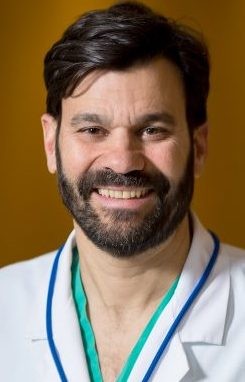ITHACA, NY (607NewsNow) — If a wound hasn’t improved after two to four weeks, it could mean there’s a health problem that needs treatment. These wounds, called chronic wounds, are often linked to conditions like diabetes and poor blood flow. The first step in helping a wound heal is finding out what’s causing it. This can help prevent serious problems, like infections or even amputation. Brian Bollo, MD at Cayuga Health gives tips on when to seek help for chronic wounds.
What happens when I visit the Cayuga Center for Wound Healing?
The center has a team of wound care experts. At your visit in either Cayuga Medical Center or Schuyler Hospital, they will check your wound, look at your health history, and may order tests or send you to other specialists. They will create a specialized treatment plan just for you.
What types of wounds are treated most often?
The center treats many types of hard-to-heal wounds, including:
· Diabetic foot ulcers – open sores on the feet caused by poor circulation and nerve damage in people with diabetes.
· Pressure ulcers (bedsores) – caused by lying or sitting too long in one position.
· Leg ulcers from poor blood flow – due to problems with veins or arteries.
· Infected wounds – wounds with serious skin or bone infections.
· Failing skin grafts – when a skin graft doesn’t heal properly.
· Wounds from radiation therapy – damage to skin and tissue after cancer treatment.
What advanced treatments are offered?
· Negative pressure wound therapy – A vacuum device gently pulls fluid from the wound and helps new tissue grow.
· Skin substitutes – Lab-made materials that help the body heal. These are used during regular visits.
· Hyperbaric oxygen therapy (HBOT) – Patients sit in a clear, pressurized chamber filled with 100% oxygen. This helps wounds heal and fights infection. Patients can watch TV or listen to music during the 2-hour sessions, which are done five days a week for 6 to 12 weeks. HBOT works well for wounds that haven’t healed with regular treatment, like diabetic foot ulcers and radiation injuries.
Get help sooner rather than later
If you or someone you care about has a wound that won’t heal, don’t wait. Getting help early can prevent serious problems and help you recover faster. Call the Cayuga Center for Wound Healing at (607) 274-4203.

Brian Bollo, MD, received his medical degree from SUNY Downstate Medical College in Brooklyn and completed a five-year residency at Staten Island University Hospital. His fellowship training at Lutheran Medical Center in Brooklyn was in minimally invasive surgery, with a focus on bariatric surgery. He can be reached at Cayuga Surgical Specialists (607) 273-3161) and Cayuga Center for Metabolic and Bariatric Surgery (607) 252-3555.



